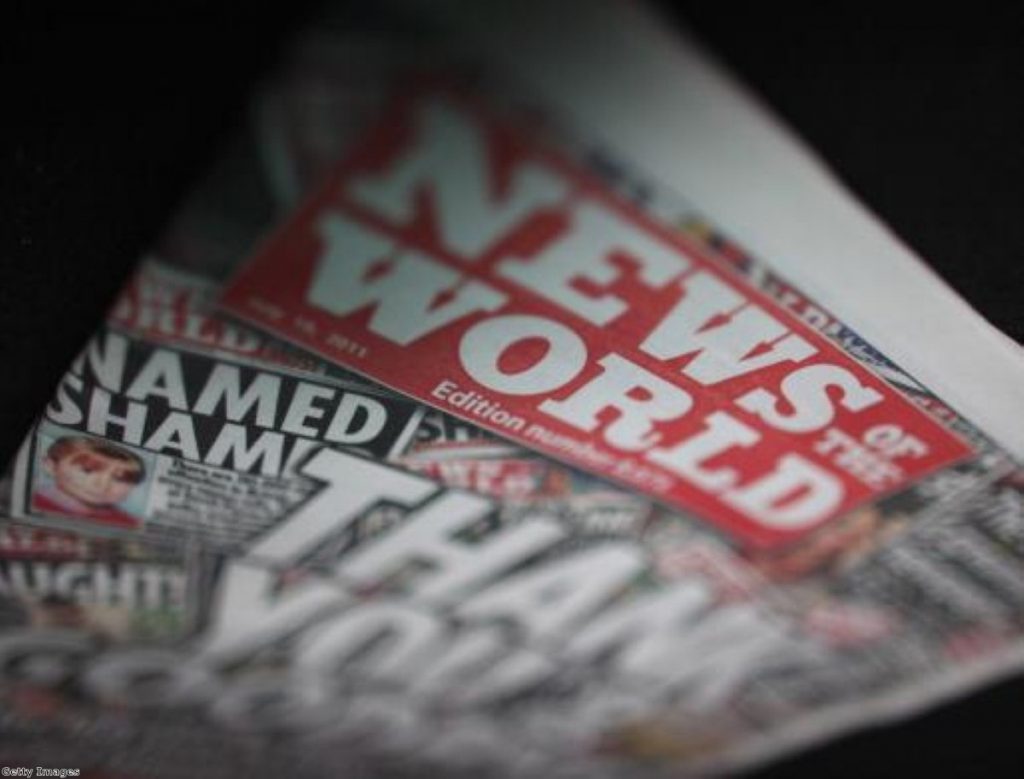Analysis: Murdoch and Cameron’s cold phone-hacking logic
By Alex Stevenson Follow @alex__stevenson
Dealing with the past, planning for the future: these are the quandaries which Rupert Murdoch and David Cameron share as they struggle to overcome the phone-hacking scandal.
We still don't know the full extent to which phone-hacking was a widespread, accepted practise at the News of the World. But, as News International chief executive Rebekah Brooks told staff at the doomed tabloid yesterday, there are many revelations still to be made public. Scandalous expenses practises continued for years before MPs' dodgy claims were finally revealed. How rotten is the British print media, and how long has it been this way?
With two inquiries set to investigate, it will hopefully not be too long before we find out. In the meantime Murdoch faces intense public anger which needs to be dealt with.
The tendency to vilify the most powerful man in the British media world stems from the suspicion that he uses his newspapers to advance his own political and financial interests. Murdoch is a businessman first and foremost, dedicated to making money. So his behaviour now should be viewed through that prism. What can he do, given what has gone before, to make the most money from here onwards?
This is Murdoch's problem: not that the scandal took place, per se, but that is has been made public. It threatens his future, not his past. As well as four national newspapers, there is also the £10 billion takeover of BSkyB to protect.
Shutting down the News of the World, his first decisive response, was a bold one. The tabloid has an impressive 168-year history in which it has deeply embedded itself in Britain's popular culture. That wasn't enough to save it from straightforward business sense, though. It has been sacrificed in an attempt to rescue the BSkyB deal, worth far more to Murdoch than his British red-top.
Once the decision had been taken, it follows that the maximum possible leverage should be gained from the move. The aggrieved current generation of journalists at the newspaper, standing defiantly outside before heading off to the pub, help Murdoch's cause. Donating the proceeds from the final edition to charity has PR fingerprints all over it. Above all, the appeal to sentimentality and trumpeting of the paper's past journalistic feats on its front page help draw attention away from the shameful practises which have now brought about the tabloid's demise.
Now we have to ask whether the end of the News of the World will also be the end of the scandal for Murdoch – and for Cameron, whose decision to hire former News of the World editor Andy Coulson as his communications director in No 10 now appears extremely foolhardy. Senior Conservative MPs are accusing him of a schoolboy error. They're asking: 'would this have happened under Thatcher'? Question-marks about judgement are never good news for sitting prime ministers.
Actually, Cameron's judgement may not have been as skewed as all that. No one predicted, even one week ago, that the phone-hacking scandal would take off as it has done. Until now it was just about a few celebrities and politicians, not murder victims and fallen soldiers. In just a few days the scandal has leaped from being about a single rogue journalist to the ethical standards of the entire industry.
Hindsight is a fine thing. For the prime minister, the significance of his past misjudgements has shifted without him doing a thing. Now he, like Murdoch, must use cold logic to flesh out a response.
Oddly, the best way for him to minimise the damage might be to reduce the 'bad apple' effect against Coulson. When the rest of Fleet Street was thought to be engaged in fine, upstanding journalism, hiring the one bad apple would have looked a spectacular mistake. With the whole of Fleet Street full of morally bankrupt hacks – even if no one realised it at the time – the case is altered.
Painting all journalists as villains, through the broadbrush inquiry examining the heart and soul of the media, might prove to be an effective way of achieving this. If Cameron pursues this course, he could yet escape the mire he now finds himself in.





-01.png)